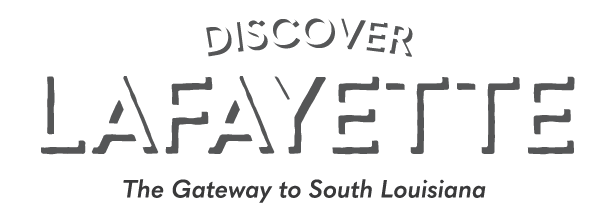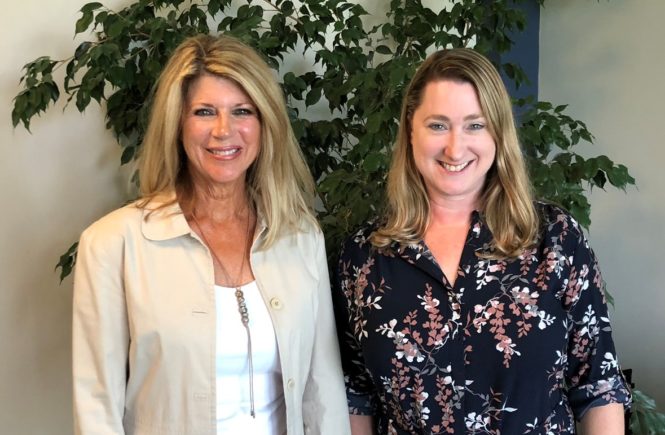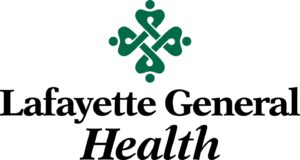Podcast: Play in new window | Download (Duration: 38:42 — 53.2MB)
Dr. Holly Howat, Executive Director of Beacon Community Connections, is on a mission to improve community health and well-being by reaching out to those most in need to reduce unnecessary hospitalizations and incarcerations for people in crisis. Since January 2018, Beacon’s trained”navigators” have been helping people improve social functioning by providing compassionate, non-clinical case management which keeps their clients stable and healthy. In this episode of Discover Lafayette, Holly discusses how Beacon has saved millions of dollars in healthcare costs to Lafayette General Health and how the program has now been extended to Our Lady of Lourdes Hospital.
Holly has a unique background which led to her role at Beacon. She served as the Executive Director of the Lafayette Parish Criminal Justice Coordinating Committee under the purview of the Lafayette Parish Sheriff’s Office. While there, she started the Justice and Health Collaborative which brings agency leaders and community stakeholders together to increase community mental health supports to reduce the number of individuals with mental illness in jail. Prior to that, she was a Project Director at the Picard Center for Child Development and Lifelong Learning where she directed research and evaluation projects involving Louisiana’s after school programs and positive behavior interventions, as well as juvenile justice research.
She has learned over the years how lifestyle has a major effect on a person’s well-being. The social causes of poor physical and mental health greatly impact the healthcare’s system ability to effectively treat patients. Hospitals have become revolving doors for patients who are struggling with multiple issues, like homelessness, chronic health conditions or serious mental illnesses. Holly refers to these patients as “familiar faces,” a term kinder than “frequent fliers” or “super users” that some people use to describe the patients who use emergency rooms as their primary care providers.
Beacon Community is patterned after a similar program that originated in Seattle. In 2015, the Justice and Health Collaborative brought together a variety of stakeholders to discuss how best to address the phenomena of people with mental health issues who end up incarcerated because there was no other effective way to handle their needs. It was also common knowledge that these same individuals were cycling in and out of area hospitals due to a lack of follow-through on their health care needs. Key players in the discussion were the Acadiana Area Human Services District (known as “Tyler”), local hospitals including UHC, the Picard Center, UL-Lafayette’s nursing program, the D. A., the Sheriff, Lafayette Chief of Police, local judges, the Public Defender’s Office, and various mental health agencies. The group’s goal was to focus on the humanity of this group of troubled individuals who needed compassion and assistance to get back on their feet.
Michael Tipton, CEO of Blue Cross, was supportive of the effort and suggested that the Beacon Project apply for a Special Projects Designation grant which was successfully awarded. The initial effort was set up through 232-HELP, partnered with Lafayette General Health System, and was expanded to St. Martin Hospital and Acadia General Hospital. Two navigators (caseworkers) worked with about 600 clients in the first year. Hospitals screen for patients who have social needs that are complicating their health issues, and the Beacon Project’s Community Care Navigators connect those patients with community sources for food, housing, jobs and more. Weekly phone calls provided a connection to the clients and assistance such as housing and transportation were arranged if needed.
Issues such as access to fresh food, safe housing, exercise, attending church, and a support system are just as important as quality of care. “If one or more social determinants is missing or if a person’s lifestyle is negative overall, his or her health is more likely to suffer,” says Howat.
In an analysis of Beacon’s first year in operation, the organization was shocked at the benefits realized from the program’s outreach. First was the readmission rate of clients assisted by Beacon which is a crucial component of a hospital’s ability to get reimbursed by Medicare; if a patient is readmitted within 30 days, Medicare rules prohibit payment to the hospital for services rendered. Whereas Lafayette General Health System has a 15.5% 30-day readmission rate, the Beacon clients’s readmission rate was 4.4%, and their 90-day readmission rate was 7.7%.
A cost analysis also delivered good news on the program’s effectiveness. Whether you compared the hospitals’ savings realized from keeping patients from being readmitted (whether you looked at “master charge”….the list price hospitals charge for procedures or the negotiated prices that insurers reimburse hospitals for services), the savings amounted to 63%. Negotiated insurance reimbursements amounted to $2 million in savings, and master charge savings amounted to $12 million.
The Beacon Project’s connection with local healthcare systems helps those hospitals return to a focus on medical care. Patients who may previously have made multiple trips to the same hospital or healthcare system will instead get appropriate care through community social supports and services. “We’ve been able to change policies and procedures within the criminal justice system,” Howatt said. “We’ve also been able to reach out to other systems, such as our public mental health system, to try to improve the way our community and our criminal justice system responds to the needs of the mentally ill.”
As the program’s clients have been helped, some of the needs have been different than Holly and her staff had anticipated. Social isolation and loneliness are big problems and many people have no support group or family that will check on them, take them to church or just make sure they’re taking their meds. Beacon’s weekly phone calls provide a much-needed connection to the world that can save lives.
Another issue that people need assistance with is finding a primary care physician. Even as Medicaid has expanded in Louisiana, many practitioners do not accept it as a form of payment. Beacon can make connections for their clients which has gone a long way to prevent patients from using the ER as their primary healthcare provider. It also leads to healthier outcomes as people become proactive in their health.
Beacon Community Connections is a 501 (c) (3) and does not receive government funding. It relies on grants and has recently contracted with Lafayette General and Our Lady of Lourdes to continue their services. Fundraising is important to keep its mission afloat. The group is hosting the South Louisiana Community Health Summit on September 25, 2019, at the Heymann Center which will not only share information about the latest health issues and policies, but will provide much-needed funds. This is an opportunity to learn more about how access to healthcare drives outcomes.
For more information, please visit https://www.beaconconnections.org.




